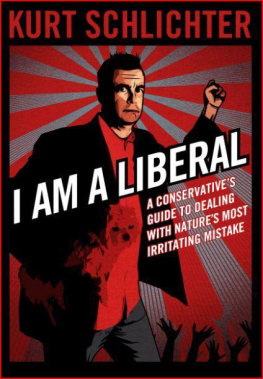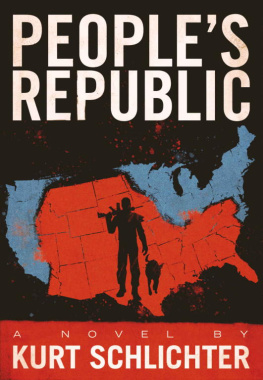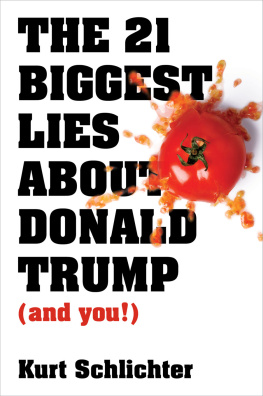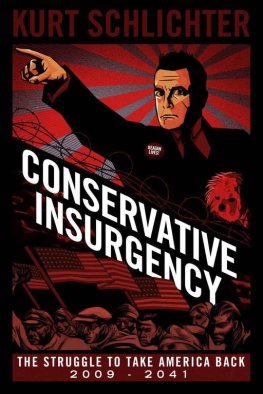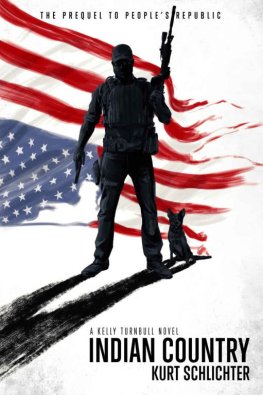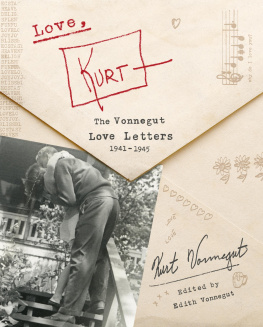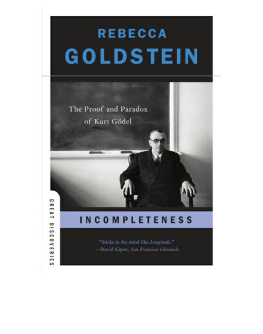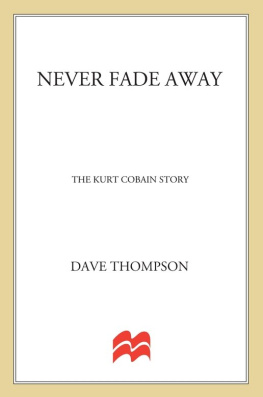Kurt Schlichter - Militant Normals
Here you can read online Kurt Schlichter - Militant Normals full text of the book (entire story) in english for free. Download pdf and epub, get meaning, cover and reviews about this ebook. year: 2018, publisher: Center Street, genre: Detective and thriller. Description of the work, (preface) as well as reviews are available. Best literature library LitArk.com created for fans of good reading and offers a wide selection of genres:
Romance novel
Science fiction
Adventure
Detective
Science
History
Home and family
Prose
Art
Politics
Computer
Non-fiction
Religion
Business
Children
Humor
Choose a favorite category and find really read worthwhile books. Enjoy immersion in the world of imagination, feel the emotions of the characters or learn something new for yourself, make an fascinating discovery.

- Book:Militant Normals
- Author:
- Publisher:Center Street
- Genre:
- Year:2018
- Rating:4 / 5
- Favourites:Add to favourites
- Your mark:
- 80
- 1
- 2
- 3
- 4
- 5
Militant Normals: summary, description and annotation
We offer to read an annotation, description, summary or preface (depends on what the author of the book "Militant Normals" wrote himself). If you haven't found the necessary information about the book — write in the comments, we will try to find it.
Militant Normals — read online for free the complete book (whole text) full work
Below is the text of the book, divided by pages. System saving the place of the last page read, allows you to conveniently read the book "Militant Normals" online for free, without having to search again every time where you left off. Put a bookmark, and you can go to the page where you finished reading at any time.
Font size:
Interval:
Bookmark:
Copyright 2018 by Kurt Schlichter
Cover copyright 2018 by Hachette Book Group, Inc.
Hachette Book Group supports the right to free expression and the value of copyright. The purpose of copyright is to encourage writers and artists to produce the creative works that enrich our culture.
The scanning, uploading, and distribution of this book without permission is a theft of the authors intellectual property. If you would like permission to use material from the book (other than for review purposes), please contact permissions@hbgusa.com. Thank you for your support of the authors rights.
Center Street
Hachette Book Group
1290 Avenue of the Americas, New York, NY 10104
centerstreet.com
twitter.com/centerstreet
First Edition: October 2018
Center Street is a division of Hachette Book Group, Inc. The Center Street name and logo are trademarks of Hachette Book Group, Inc.
The publisher is not responsible for websites (or their content) that are not owned by the publisher.
The Hachette Speakers Bureau provides a wide range of authors for speaking events. To find out more, go to www.HachetteSpeakersBureau.com or call (866) 376-6591.
Library of Congress Cataloging-in-Publication Data has been applied for.
ISBNs: 978-1-5460-8195-1 (hardcover), 978-1-5460-8194-4 (ebook)
E3-20180917-JV-NF
To my wife, Irina, American and Normal by choice
The whole idea behind this book is to give the reader a simple and coherent explanation for why American society has become so polarized over the last few decades, and during the last few years in particular. It is not meant to be a dreary slog. It is not a political science treatise. You will not find academic theories or a lot of citations and footnotes. That is just one of several reasons that no college student will ever see this book show up on his syllabus.
The primary reason is that it is entirely sympathetic to Normal Americans and their struggle to reclaim what belongs to themthe United States of America.
So, this book is not strewn with the kind of jargon I learned as a poli sci major. I hate jargon. It is one of the many tools that experts tend to use to make their areas of expertise seem more complex and difficult than they really are, thereby making themselves indispensable. Whats happened and is happening now in our country is not that difficult to understand. My purpose is to provide a clear, uncomplicated way of thinking about what is going on so the reader can more effectively exercise his or her birthrightsovereignty. I hope I have done that.
This book was written for Normal Americans. Note the capitalizationthe term Normal appears throughout the book, and the concept is important. One way to understand American society today is to see it divided into two general classes, an Elite and the Normals. The Elite are those people, the experts, who run the day-to-day operations of societys institutionslike the government, the media, academia, and Hollywood. But today, Americas Elite also includes those who merely identify with the values and ideology of the Elite. You dont actually have to be elite to be Elite, and the consequences of that low bar to entry explain a lot about why the Elites are so upset that the Normals elected a guy like Donald Trump.
The only real qualification for joining Americas modern Elite is to choose to affiliate with the Elite. The guy who runs Goldman Sachs? Hes Elite. But so is the twenty-three-year old dude with the goatee and knit cap spending all afternoon in the Starbucks tapping away on his iPad Pro, sipping a cruelty-free green tea as he tweets TRUMP RUSSIA TREASON! at conservatives on Twitter.
Let me reiterate something. Being in the American Elite has nothing to do with actually being elite, as we typically understand that word. You dont have to be special to affiliate with the Elite. To the extent our Elite is a meritocracy, it is a meritocracy without meritand without a willingness to accept accountability when it fails to perform adequately. If the last thirty years have taught us anything, it is that.
To be Elite today, you just have to decide that you arent like regular people.
The Normals are everyone else.
The Normals cede day-to-day control of the operations of societys institutions to the experts. Those experts and those who identify with them are the Elite. The Normals would happily let the Elite do what the Elite does and focus on living their own lives if the Elite would both perform competently and not subject those it is supposed to be serving to an escalating series of petty oppressionsand some not so petty oppressions.
Now, those are very broad generalizations, but generalizations are useful. Not every member of the Elite will precisely conform to the general characteristics of the Elite, nor every Normal precisely conform to the general characteristics of the Normals. But in general, these generalizations are generally sound.
Within each broad caste you will find further divisions. While most of the Elite holds to a center-left political ideologyenough so that sometimes as you read this book you will see that it is almost identicalthere are members of the Elite who lean to the right. It gets interesting when class loyalty clashes with ideology, and you often see people prioritize the premises and assumptions of their class over their alleged political ideology.
Thats where the tiresome Never Trump contingent comes in. When you see alleged conservative and noted cruise shiller Bill Kristol tweet about how he hopes the mandarins in the bureaucracy will step in to neutralize the policy choices of our elected president, you see someone ditching his putative conservatism in favor of class solidarity. And it probably does not hurt that if his fellow Elites were to succeed, Captain Kristol and his crew would stand to return to the positions of relative prestige they held before the Normals tired of Conservative, Inc.s inability (or unwillingness) to win and elected Donald Trump.
Normals is not a synonym for conservative. The Normals tend to be center right, if you have to place them on the political spectrum, but thats mostly because traditional American values like faith, family, and patriotism have become identified with center-right politics as liberals have either stopped defending them or abandoned them altogether. However, Normals do embrace some concepts that ideological conservatives (like me) consider heresies, such as doubts about free trade. Further, some Normals are on the leftthere were Normals who supported Bernie Sanders. They feel the high and mighty are giving them a raw deal, and many of them chose Trump over Hillary Clinton for just that reason.
The Normals embrace traditional Main Street valuesfaith, family, and patriotismand a sense that America and Americans must be the priority. This puts Normals in conflict with an Elite that has eschewed traditional patriotism for at best a kind of ironic detachment from outright manifestations of itthe flag waving they find so dclassand at worst, an idea that they are citizens of the world, immune from the crude nationalism you will find should you be forced to venture west of I-95. When your central image of yourself is not as an American, then why would you put either Americas or Americans interest before anywhere or anyone elses?
The tension between the Elite and the Normals arose largely because todays Elite no longer shares such core values (even if, like the Kennedys, they merely pretended to do so for public consumption), and because the Elite no longer respects the Normals as the reservoir of those values. Back in the forties, Hollywood made movies extolling the Normals as the source of those valuesIts a Wonderful Life (1946), anyone?but no longer. Starting in the sixties, the young members of the Elite began to reject these traditional values. This sparked a conflict both with the older Elite
Font size:
Interval:
Bookmark:
Similar books «Militant Normals»
Look at similar books to Militant Normals. We have selected literature similar in name and meaning in the hope of providing readers with more options to find new, interesting, not yet read works.
Discussion, reviews of the book Militant Normals and just readers' own opinions. Leave your comments, write what you think about the work, its meaning or the main characters. Specify what exactly you liked and what you didn't like, and why you think so.

